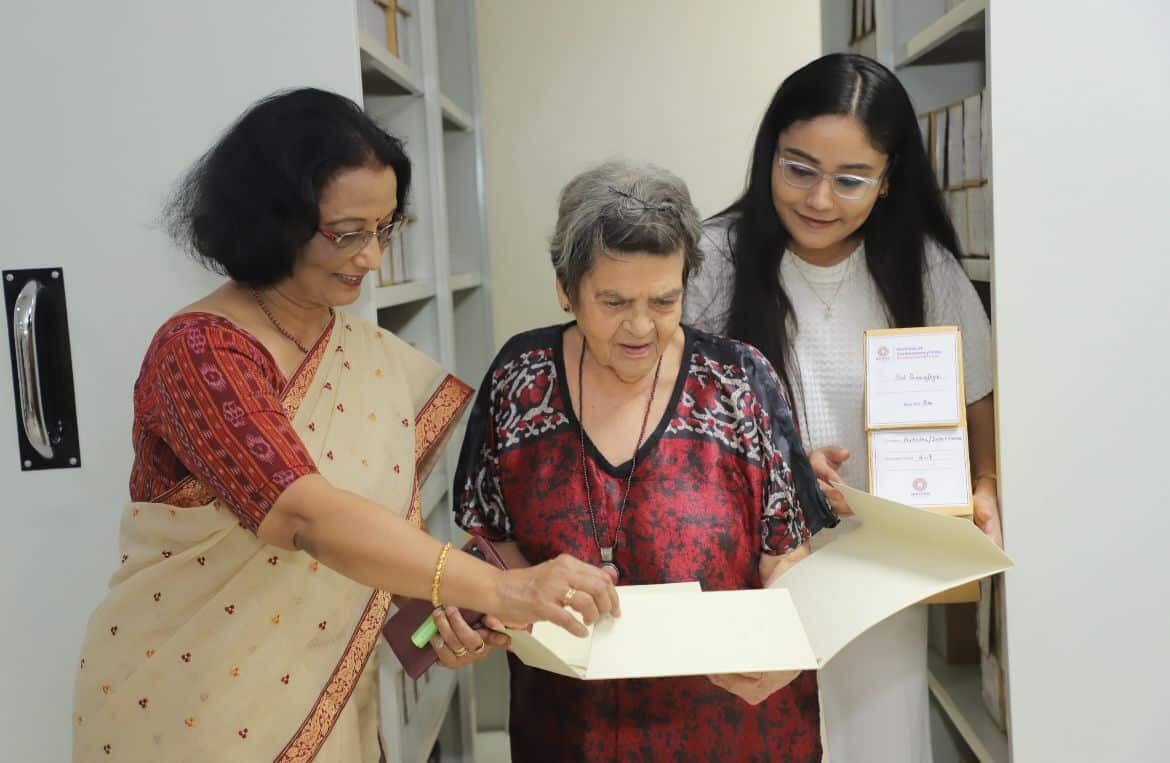The Archives of Contemporary India at Ashoka University currently house the collection of original, handwritten drafts and screenplays that renowned filmmaker and theatrical legend Sai Paranjpye donated, greatly enhancing the history of Indian cinema. The screenplays of her well-known movies, such as Sparsh (1980), Chashme Buddoor (1982), Katha (1983), Disha (1992), Papeeha (1993), Saaz (1997), and others, are part of the donated collection. There are also stage plays, teleplays, and telefilms in Marathi, Hindi, and English. This hidden gem will now be available to academics and researchers, providing insightful information on her significant contributions and her wider influence on Indian cinema.
Renowned works by Paranjpye, including Aal Bel, Sakkhe Sezari, Manjhe Khel Mandu De, and Jaswandi, and children’s plays, including Nana Phadnavis, Jaducha Shankh, Haravalelya Khellyanche Rajya, and Patte Nagrit, are among the contributed items. With this gift, Paranjpye becomes the first filmmaker to add her collection to Ashoka University’s Archives, joining the ranks of distinguished academics and researchers whose work is housed there.
The inclusion of Paranjpye’s manuscripts provides academics with a priceless resource that charts the director’s development as a writer and director. This collection thoroughly examines the thought processes that went into creating her well-known works, from the conception of her concepts to the completed screenplays. This will be very helpful for scholars and students who are researching the origins and development of Indian film.
Vice-Chancellor of Ashoka University Prof. Somak Raychaudhury thanked the donor and said, “It is a great honour to have Sai Paranjpye’s collection as part of our Archives of Contemporary India.” Her work marks a significant turning point in Indian cinema, and upcoming generations of academics will study her tremendous influence on storytelling and filmmaking.
On October 17, 2024, Ashoka University threw a special celebration to honour Paranjpye’s remarkable contributions to the film industry. Attendees included faculty, students, and movie buffs. During the interactive session, the filmmaker provided insights into her creative process, sources of inspiration, and the development of Indian cinema. The audience also enjoyed watching the Gavasni (The Sky is the Limit), a Marathi movie honouring astronomer Prof. Jayant Vishnu Narlikar on his 80th birthday. Disha (The Immigrants, 1990), a film that delves into the challenges faced by rural migrants living in metropolitan environments, was next screened.
“When Ashoka University’s Archives of Contemporary India requested my manuscripts, I saw it as an incredible opportunity,” Paranjpye remarked about her choice to give the collection. Being included in this esteemed institution’s exquisite catalogue alongside such luminaries as Girish Karnad, Dilip Padgaonkar, and Suresh Kohli is a true honour.”
Sai Paranjpye, a trailblazing Indian woman director, is renowned for her singular ability to combine comedy with social critique. Her movies, including Sparsh and Chashme Buddoor, have had a lasting impact on Indian cinema. She has received numerous honours over her lengthy career, including two Filmfare Awards, four National Film Awards, and the coveted Padma Bhushan in 2006 for her enormous contribution to the arts.
“My advice to students is to study the life around them and watch good films, both Indian and international, as they offer valuable learning experiences,” Paranjpye said about advice for aspiring filmmakers.
Scholars, researchers, and filmmakers will find this incredible collection of original scripts and drafts, currently housed in the Archives of Contemporary India, to be an invaluable resource. It provides a thorough look at Paranjpye’s artistic development and is sure to motivate upcoming Indian film storytellers.









Sorry, the comment form is closed at this time.